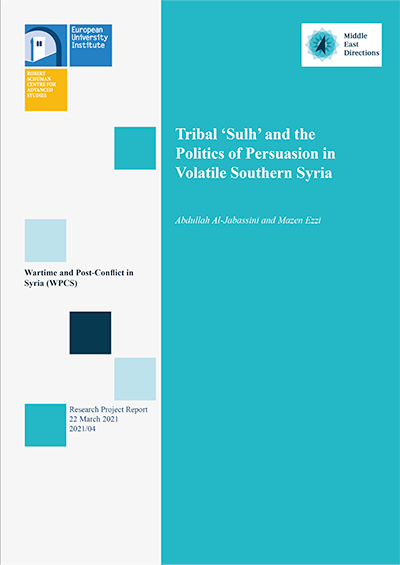MEDirections is delighted to share a new Research Project Report from the Wartime and Post Conflict in Syria project (WPCS).

Over the last few years, increasing political and criminal violence has dominated narratives emerging from Daraa and Sweida governorates in southern Syria. In their own localities, however, local notables have not been mere bystanders. They have made use of tribal sulh – a traditional conflict-resolution mechanism – to adjudicate disputes and contribute to maintaining some degree of normality and order. Drawing on original data derived from interviews with civilians, local notables and senior leaders of armed groups, together with rare access to the backstage of various intra- and inter-community sulh initiatives, this research paper investigates the conditions under which local notables have succeeded or failed to utilise sulh and reduce the risk of intra-community violence in Daraa and Sweida. The authors demonstrate how domestic, regional and international actors have interfered to create, support or spoil the sulh process that took place between Daraa and Sweida over the course of 2020 in pursuit of their interests.



